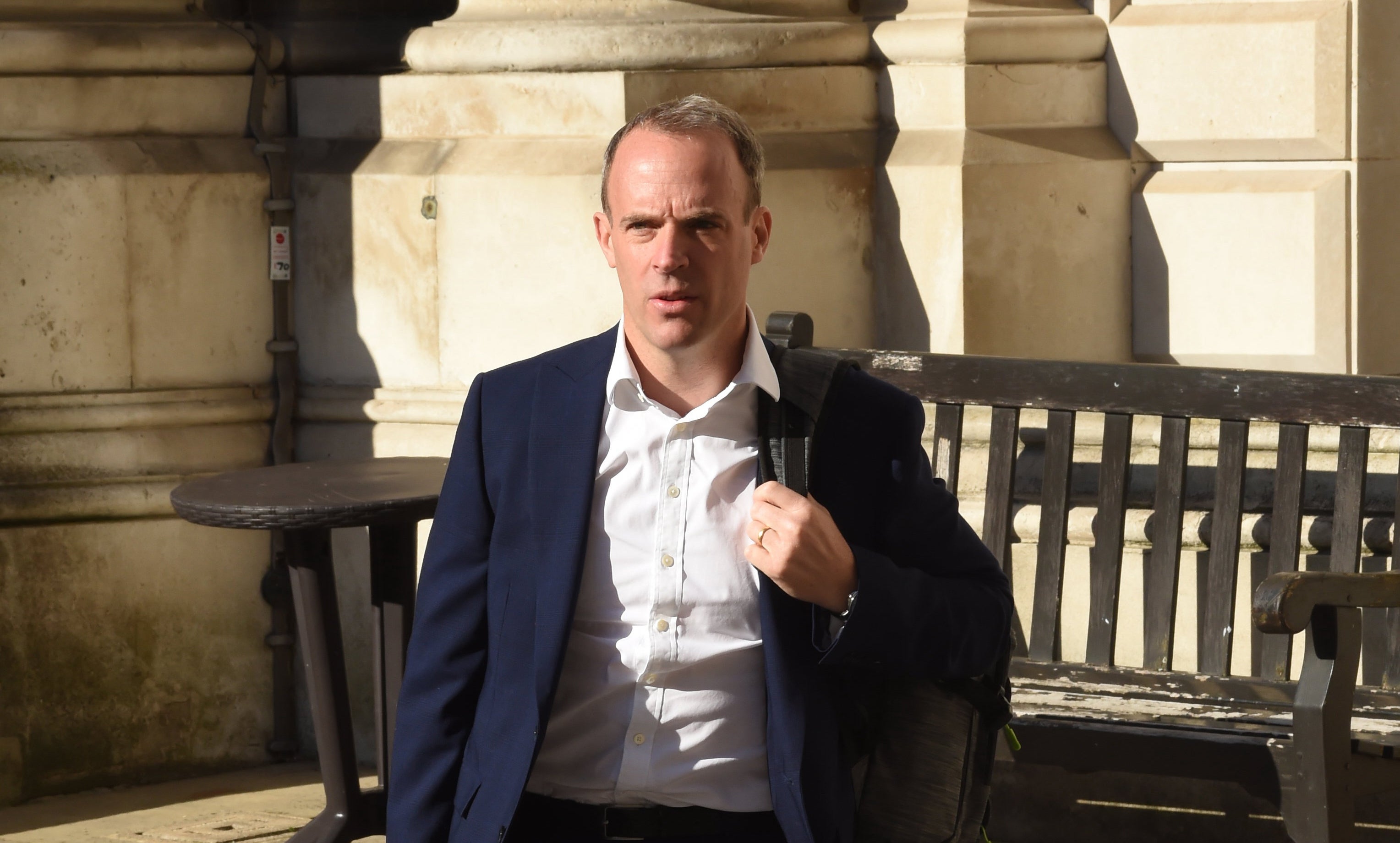Cut Dominic Raab some slack, ministers make huge personal sacrifices for the public
Yes we need politicians to be present, but they get no after-work pilates classes or weekends, writes Salma Shah


Rest is a weapon, according to the amnesia-prone Jason Bourne, the fictional CIA assassin gone AWOL. Unless, of course, you’re a British cabinet minister – in this case, the opposite is in fact true. Rest can be fatal to your career.
Take the foreign secretary, Dominic Raab. He toured the TV studios this morning providing updates on the desperate situation in Afghanistan and clarity on exactly which excursions and activities he enjoyed whilst on his “luxury” holiday in Crete. He was most definitely not paddleboarding or “lounging” on a beach and I for one cannot see paddleboards as his vibe, adding plausibility to this denial.
Critically, he acknowledged that with the benefit of hindsight he wouldn’t have gone on holiday at all given the circumstances and the crisis unfolding in Afghanistan. To some people this seems excessive; surely everyone deserves a holiday? He was, like the rest of the world, caught off guard, so we should give him some leeway, but he’s right. Ministers are in no position to be having any kind of break or being seen to be doing anything other than work, especially in an emergency. In the public view, they must keep their noses to the grindstone.
We might think of ourselves as reasonable people but as soon as it comes to politicians, all goodwill is suspended, we assume they are lazy good-for-nothings who have no concern or compassion for their jobs outside of their own self-interest. It’s unfair but it’s the reality, and it’s through this prism that every action in government should be taken. It’s not enough that the situation is being monitored and necessary decisions are going to a principal minister, we need them to be present. But this isn’t just a question of optics, there are substantive reasons why it’s better to be “in the room”.
When dealing with fast-paced situations, quick access to the key decision-makers is essential, time and expertise are critical, the right people need to be in the right place at the right time. It’s no good having to wait an hour to schedule a call when you can run into an office in half the time. Asking detailed follow-up questions, speaking to people in the margins – it all makes a huge difference in an unfolding event. Being able to convene and gather so that everyone can have their say and build the strongest picture possible is crucial, and in person there are more chances to assert a view.
Most ministers make huge personal sacrifices to do their jobs. It strains relationships, costs friendships and quite often encourages the disappearance of once-taut waistlines. There is no HR support, after-work pilates classes or weekends. These jobs are abominably difficult, relentless in nature and thankless. As a minister in Her Majesty’s government, one takes on a gargantuan responsibility, one that intensifies if you are ever fortunate enough to serve in one of the great offices of state. Normal does not exist for you.
Given the truly difficult jobs our ministers have and our incredibly high expectations of them, perhaps we should sometimes be a little more generous of spirit towards them. By and large, they do their best and for however long their tenure in office is they get very little in terms of support. Holding them accountable for their actions is important and if they’re MIA they are rightly criticised, but if we’re going to insist that politicians holiday no further than the Scottish Highlands we should at least be more understanding of just how much strain they’re under.



Join our commenting forum
Join thought-provoking conversations, follow other Independent readers and see their replies
Comments